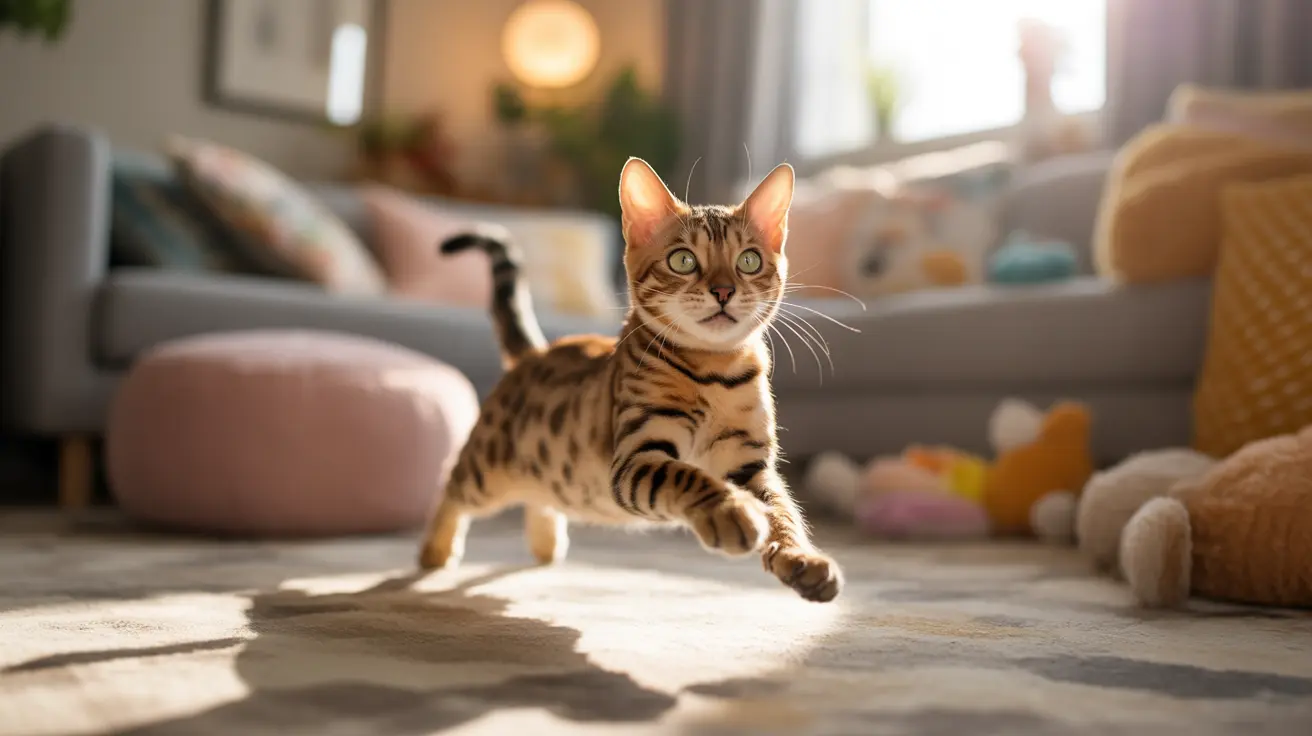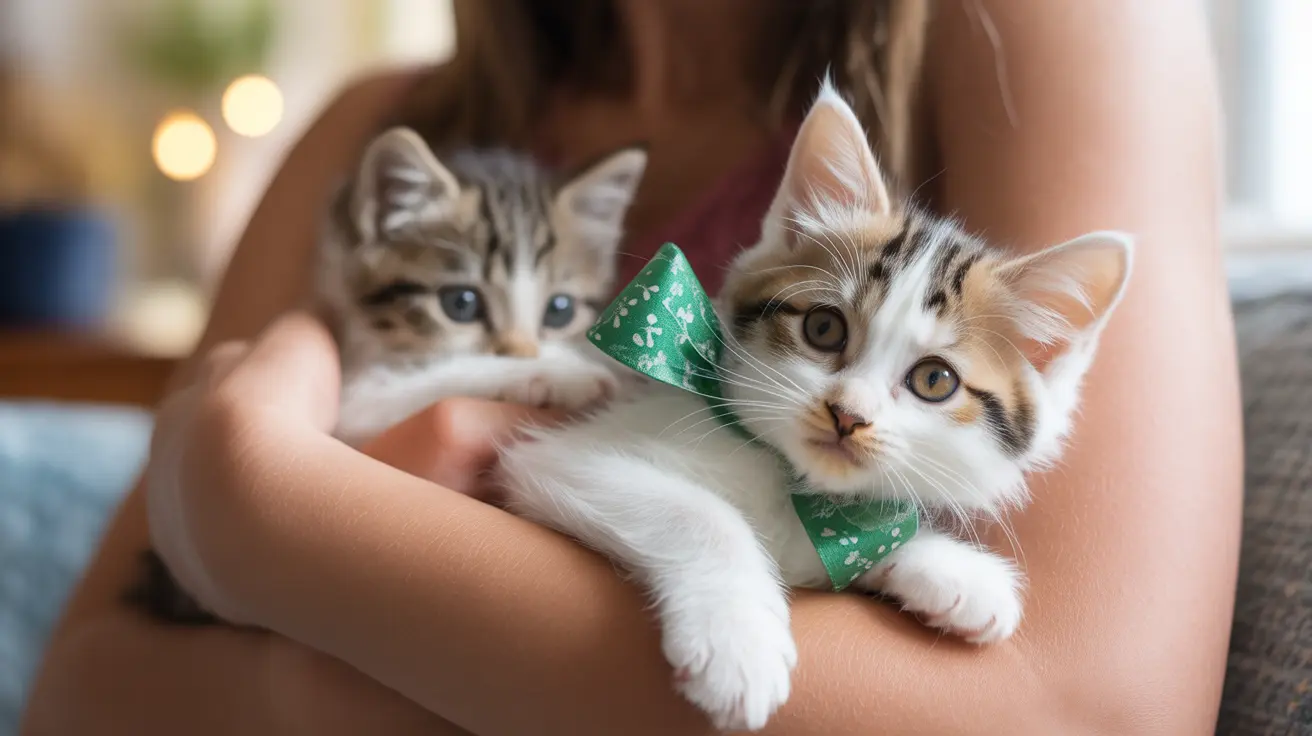Natural Hunting Instincts and Play Behavior
Cats are natural-born hunters, and this instinct doesn't disappear just because they live in our homes. When your cat chases you, they're often engaging their predatory drive in a playful way.
Your movement triggers their hunting response, similar to how they might react to a moving toy or small prey animal. This is especially common in younger cats and those with high energy levels who haven't had sufficient outlet for their natural behaviors.
The Role of Exercise and Stimulation
Regular play sessions are crucial for cats to expend energy and satisfy their hunting instincts. Without adequate physical activity and mental stimulation, your cat may resort to chasing you as a way to fulfill these needs.
Social Bonding and Attention-Seeking
Sometimes, your cat chases you simply because they want to interact with you. This behavior can be a sign of affection and social bonding, especially if your cat appears relaxed and playful during the chase.
Signs of Positive Chase Behavior
- Relaxed body language
- Playful meowing
- Taking turns being the chaser
- Periodic breaks in the chase
Understanding Aggressive or Fearful Chasing
Not all chasing behavior is playful. Sometimes, cats chase due to fear, anxiety, or aggression. Understanding the difference is crucial for maintaining a safe environment for both you and your pet.
Warning Signs to Watch For
- Flattened ears
- Puffed tail
- Growling or hissing
- Intense staring
- Rigid body posture
Environmental Factors and Triggers
Your cat's environment plays a significant role in their chasing behavior. Changes in the household, new pets, or even seeing outdoor animals through windows can trigger chase responses.
Creating a stable, enriching environment with plenty of vertical space, hiding spots, and interactive toys can help manage excessive chasing behavior.
Medical Considerations
Sometimes, unusual chasing behavior can indicate underlying health issues. If your cat suddenly starts chasing aggressively or shows other behavioral changes, it's important to consult with your veterinarian.
How to Manage Chase Behavior
Managing your cat's chasing behavior requires a combination of understanding, patience, and appropriate intervention:
- Provide regular interactive play sessions
- Use appropriate toys for redirecting chase behavior
- Create an enriching environment with climbing spaces
- Maintain consistent feeding and play schedules
- Consider puzzle toys for mental stimulation
Frequently Asked Questions
Why does my cat chase me around the house— is it play or something else?
Cats typically chase their owners either as a form of play, to seek attention, or due to pent-up energy. If the behavior includes relaxed body language and periodic breaks, it's likely playful. However, if accompanied by aggressive signs, it might indicate stress or anxiety.
How can I tell if my cat's chasing behavior is due to aggression or just wanting to play?
Playful chasing usually involves relaxed body language, gentle movements, and taking breaks. Aggressive chasing is characterized by flattened ears, puffed fur, growling, and intense staring.
What triggers cause cats to chase their owners suddenly or unexpectedly?
Sudden chasing can be triggered by environmental changes, seeing outdoor animals, loud noises, or redirected excitement. Sometimes, it's simply a burst of energy or playfulness.
Can medical problems make my cat chase or attack me more than usual?
Yes, medical issues like hyperthyroidism, pain, or neurological conditions can cause changes in behavior, including increased chasing or aggression. Always consult a veterinarian if you notice sudden behavioral changes.
What are the best ways to stop my cat from chasing or scratching me during play?
Redirect your cat's energy to appropriate toys, especially wand toys that keep your hands at a safe distance. Establish regular play sessions, provide environmental enrichment, and never punish your cat for this behavior as it may increase aggression.
Understanding why your cat chases you is the first step in maintaining a harmonious relationship with your feline friend. Whether it's play, attention-seeking, or something that needs addressing, proper management of this behavior will ensure both you and your cat remain happy and healthy.






